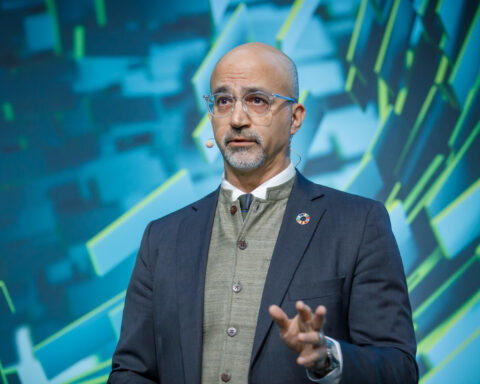Did you know that the Turkish TV industry is the second-largest exporter of TV content in the world, after the US? ‘But I’ve never seen any Turkish series!’ you might say, if, like me, you come from an English-speaking background and were never exposed to the glitz, glamour and drama of The Magnificent Century or 1,001 Nights. Well, you’re really late to the party because Turkish TV has been around for years and really is everywhere (in 140 countries to be exact) spanning regions like the Middle East, Africa, East Asia, the Balkans and the Pacific. The industry is worth about $350 million USD per year and there is no sign of it slowing down.
Telenovelas Turcas
One region where Turkish TV has experienced a meteoric rise is Latin America. It was only in 2014 when the first program was aired in Chile and since then, Turkish series have expanded all across the continent and straight onto the screens and into the hearts of Latin American audiences. They love it. Many series broke viewership records, were shown in primetime slots and there were reports of parents naming their children after characters. So what makes these shows so popular?
Turkish TV has been popular in the Middle East and the Balkans for over a decade, and researchers suggest this is due to cultural proximity. In other words, they believe that because these regions are located close by, have integrated histories and share certain socio-cultural characteristics, they probably also share a similar taste in entertainment. This cultural proximity theory appears a little weak in the Latin American context though. So if it isn’t about geographic or historic affinity, what is the appeal? To find this out we will have dive deep into the series themselves.
Drama, intrigue and everyday life
Firstly, the format of Turkish TV series is quite similar to those produced locally in Latin American; that is to say, they are heavy on the drama. But that alone doesn’t really account for why they are so popular. In reality, it all comes down to the subject matter, which strikes a chord with Latin American audiences. The majority of Turkish TV series are set in either modern-day Turkey or are historical dramas. Many of the themes include important issues like urbanisation, changing cultural and religious norms and women’s role in society. It appears these themes also resonate with Latin American audiences, even though they are depicted in the Turkish ‘exotic’ context. Therefore, despite no obvious similarities in culture, language, religion or history, the series’ popularity suggests there may be more in common between Turkey and the region than you might assume.
TV is also a way for Latin American audiences to learn more about Turkey, its history, cultural norms, religion and gastronomy. All this has had a positive impact on Turkey’s economy. In 2018, reports came out that visits to Turkey by Latin American tourists had risen 39% from the previous year. Since 2013, Turkish Airlines has also expanded into four more Latin American cities, with plans to open two more in the future. The Turkish government’s international language centre, the Yunus Emre Institute (akin to the Goethe Institute), has also begun setting up locations across the continent. While it is hard to pinpoint the cause of these changes, the Turkish government and the tourism industry are quick to attribute this to the popularity of TV series.
So what?
While this may be interesting, why does it really matter? Well, it goes a long way to increasing intercultural awareness across geographic, linguistic and religious lines, without the need for people to travel long distances and it clearly has economic benefits. It is connecting and creating a truly global viewership spanning most world regions. The global mainstreaming of entertainment movements like Turkish TV, Bollywood, K-pop and Nollywood also challenges the dominance of American pop-culture, creating more cultural and geographic diversity on our screens. Engaging with film or TV from other world regions gives us a glimpse into what makes others laugh and cry and what kinds of stories matter to them. So, can’t wait to dive right in? Here are some suggestions:
Netflix
- Rise of Empires: Ottoman
- The Gift
- The Protector
- Ezel
- Black Money





